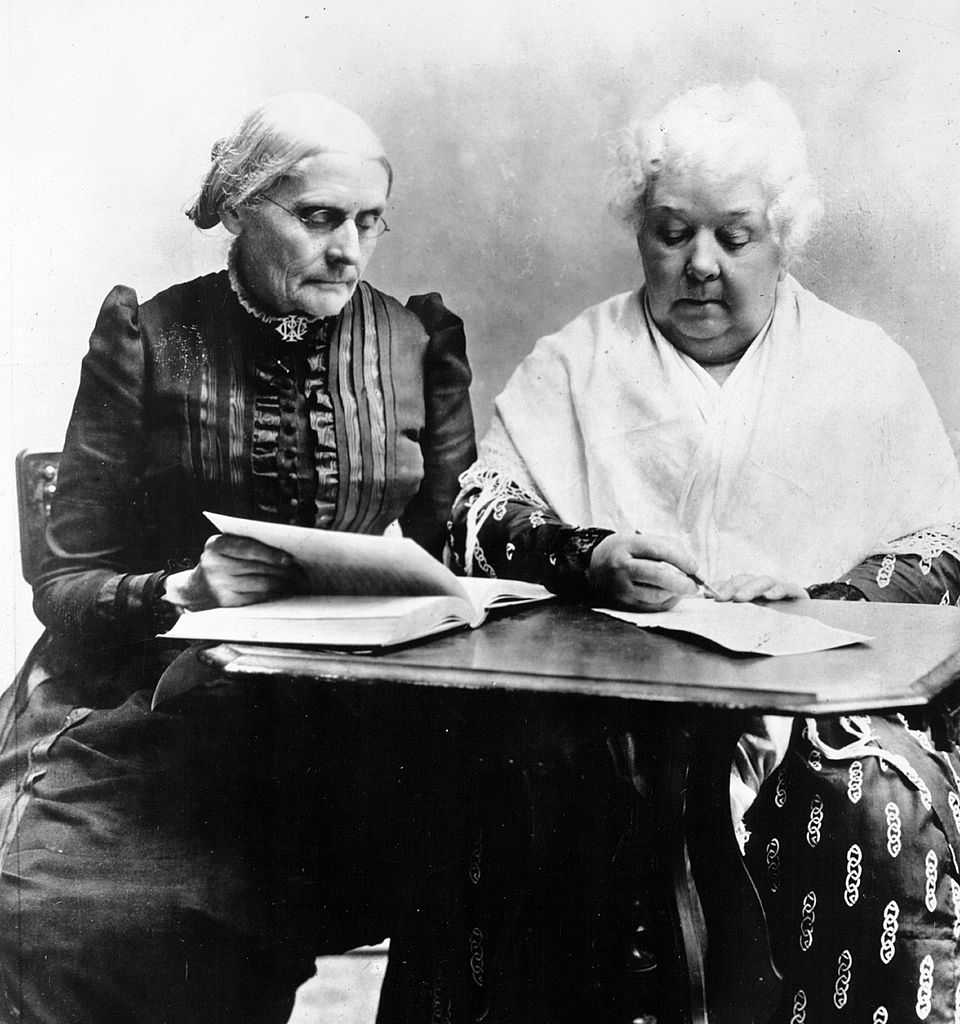A Washington Post op-ed co-authored by the board president of the Susan B. Anthony Birthplace Museum and a descendent of Anthony is sure to spark some controversy ahead of the anti-Trump Women’s March that’s set to unfold on Saturday.
The main thrust of the piece, written by Carol Crossed, the museum’s board president, and Eric Anthony, an Anthony descendent, is best encapsulated in the following line: “Anthony would never have joined a march in favor of abortion access.”
The op-ed opened with the author noting that the museum is “saddened” that it won’t be among the organizations that plan to march in Washington, D.C., on Saturday. The text continued:
Some would, perhaps, think that Anthony family descendants and board members of the great suffragist birthplace would be leading the Women’s March, especially as the centennial marking the Susan B. Anthony Amendment for women’s suffrage has begun in some states. But they would be wrong: Anthony would never have joined a march in favor of abortion access.
The unifying theme of Susan Brownell Anthony’s life was to speak up for those without a voice. Anthony fought for temperance, the abolition of slavery and especially the enfranchisement of women. She also spoke up for the voiceless child in utero, opposing Restellism, the term that Anthony’s newspaper and others at that time used for abortion. It’s easy to chalk up Anthony’s (and other early feminists’) opposition to abortion as a relic of their day and age. But these women were progressive and independent; they did not oppose abortion because they were conditioned to, but because they believed every human life has inherent and equal value, no matter their age, skin color or sex.
While Crossed and Anthony said the Women’s March platform does certainly include issues that would have been important to Anthony and others in the women’s rights movement such as racial equality and equal pay for equal work, they said sponsors such as Planned Parenthood and NARAL Pro-Coice America have made abortion a central component of the march, thus pushing out pro-life women who might want to participate.
Recent reports have indicated that some pro-life groups have been precluded by march organizers from sponsoring the event.
From there, the authors said that Anthony made it clear via her newspaper titled, “Revolution” that abortion was not something she, among others, was favorable of, though it should be noted that some critics have dismissed claims that Anthony was pro-life or that she would have definitively aligned herself with the modern-day pro-life movement. The op-ed continues:
Anthony’s newspaper, the Revolution, had a policy of not advertising abortion like other mainstream papers furtively did. Revolution editors like Elizabeth Cady Stanton were explicit in denouncing “child murder,” “infanticide” and “foeticide,” descriptions they used interchangeably for abortion. Indeed, a recent Smithsonian Magazine article discussed news coverage of “infanticide” in the 1860s, a common subject for early investigative reporters of the suffrage era, many of whom were women writing about their concerns under pseudonyms.
It is not hard to imagine that these early feminists and suffragists, Anthony among them, were opposed to the most fundamental human abuse: degrading another human being by claiming to own and destroy it. In her autobiography, Elizabeth Blackwell, a suffragist and the first U.S. female doctor, went into medicine to denounce abortionists: “Women who carried on this shocking trade seemed to me a horror,” she wrote. “It was an utter degradation of what might and should become a noble position for women.” Another suffragist physician, Charlotte Denman Lozier, said, “We are sure most women physicians will lend their influence and their aid to shield their sex from the foulest wrong committed against it,” that is, abortion. In her famous 1875 talk on social purity, Anthony condemned abortion as a consequence of liquor consumption.
The piece called for the respect of the women who do decide to show up and march on Saturday, but also asked that abortion rights “not be misappropriated to Anthony.” Read the entire op-ed here. As for the Women’s March platform, it deals with quite a variety of topics, including abortion.
“We believe in Reproductive Freedom. We do not accept any federal, state or local rollbacks, cuts or restrictions on our ability to access quality reproductive healthcare services, birth control, HIV/AIDS care and prevention, or medically accurate sexuality education,” the text reads, in part. “This means open access to safe, legal, affordable abortion and birth control for all people, regardless of income, location or education. We understand that we can only have reproductive justice when reproductive health care is accessible to all people regardless of income, location or education.”
(H/T: Washington Post)
—
Other Must-Read Stories:
– Mike Pence Plans to Take the Oath of Office on a Very Specific Bible Verse
– ‘If You’re a Christian and Everyone Likes You… Something’s Wrong’
– Ex-Planned Parenthood Staffer Reveals the Moment That Left Her Totally ‘Disgusted’
– Singer Ciara’s Powerful Message About Abstinence: Don’t ‘Feel Like You Have to Give Your Body Away’



